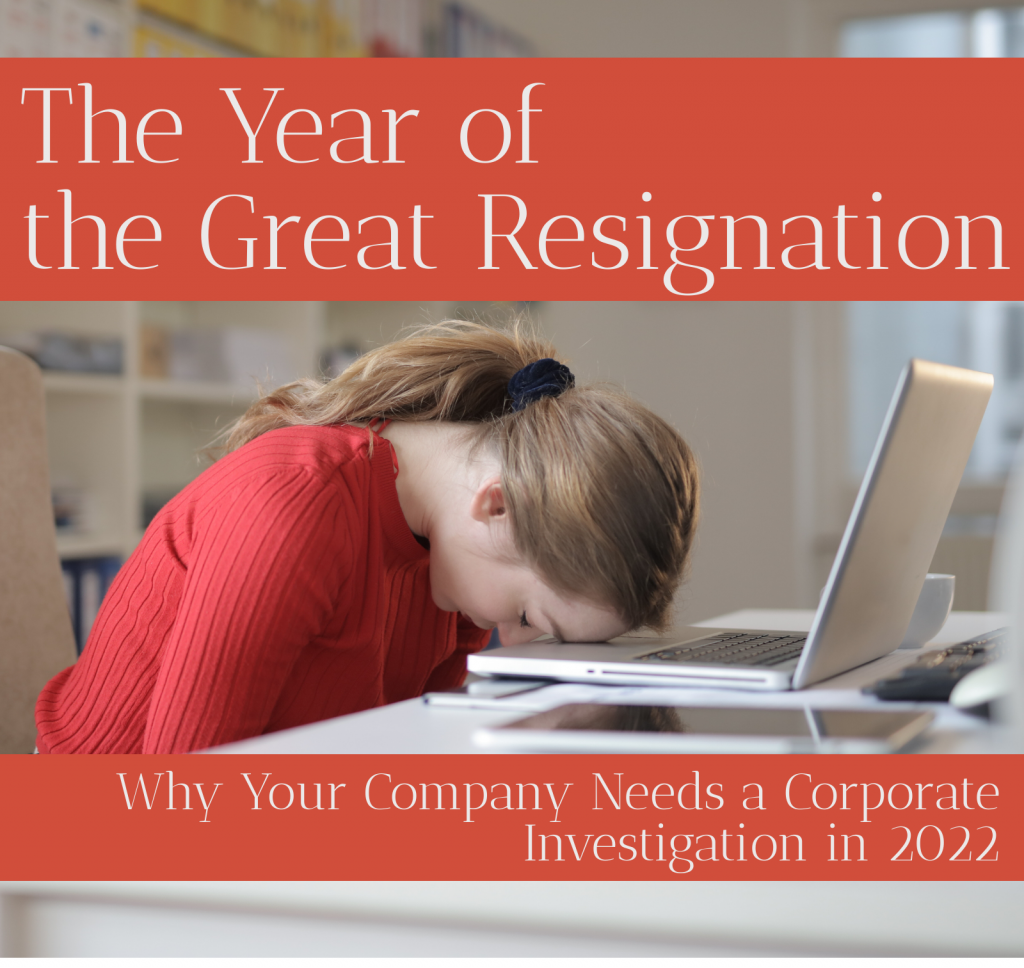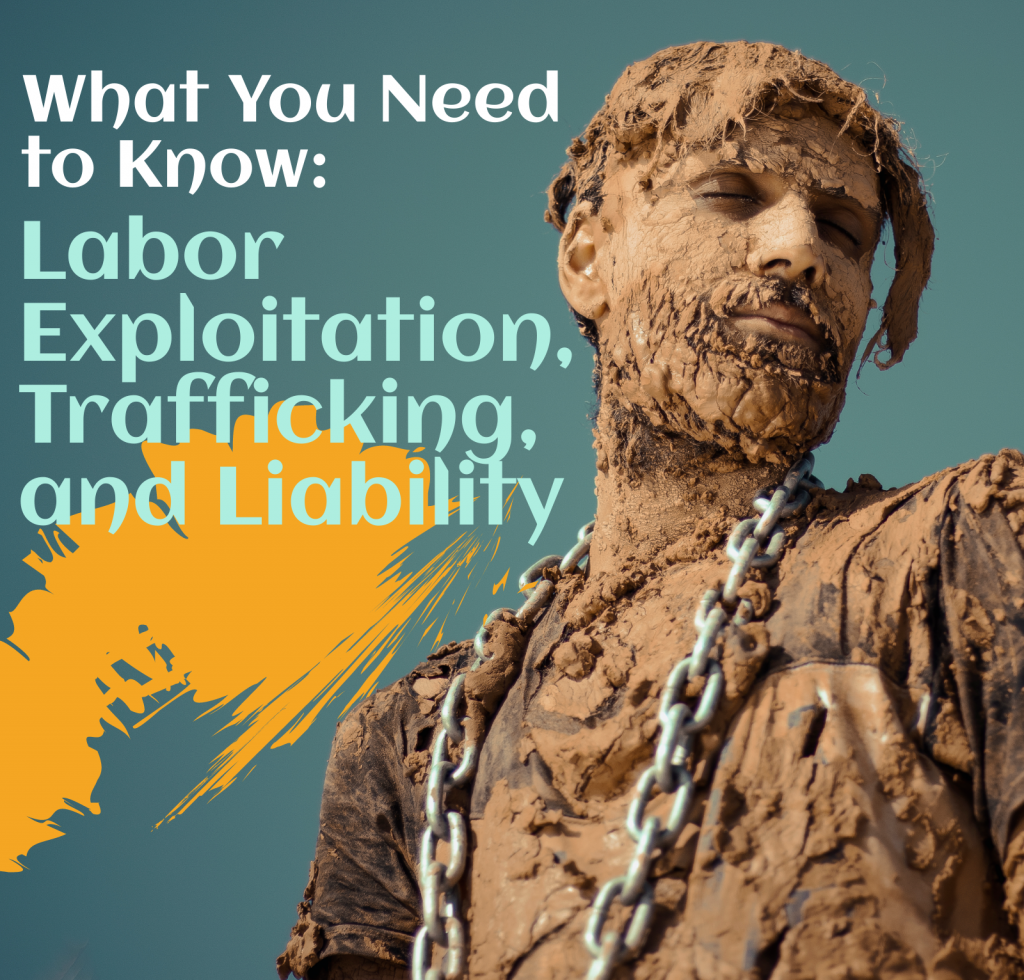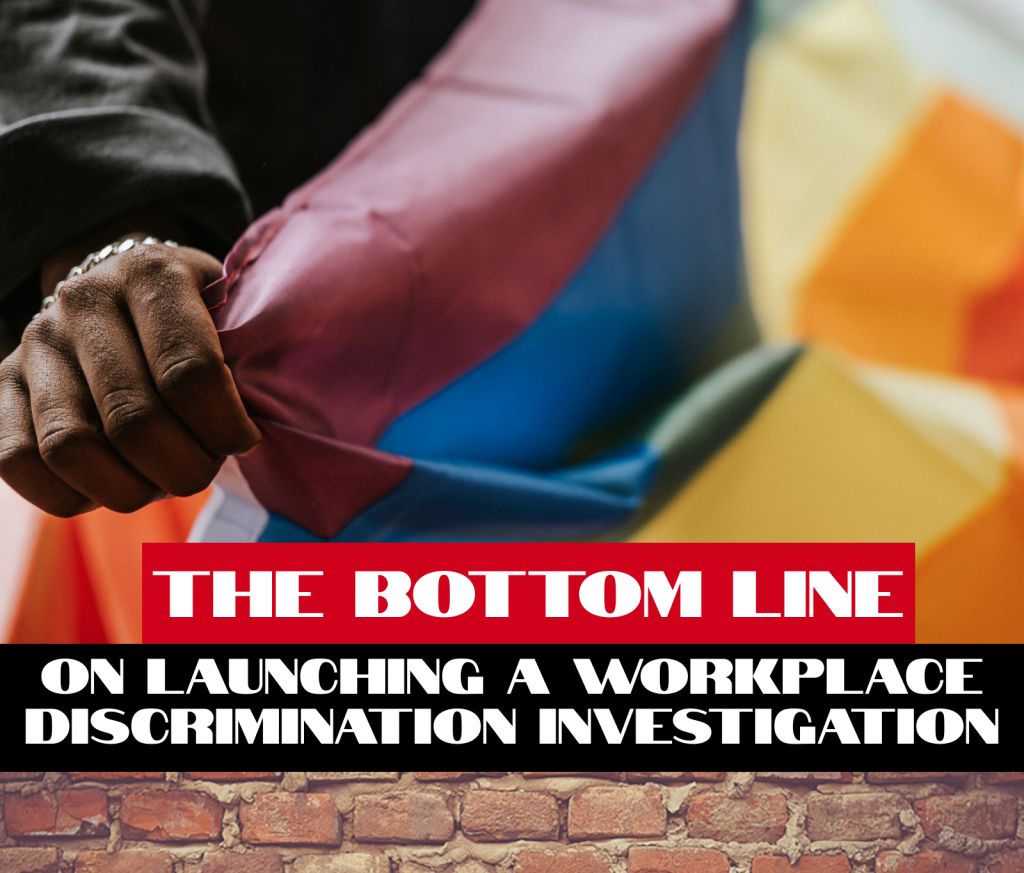Supplementing Your Workload with a Private Investigator

While there are a great number of Private Investigators across America doing great work for individual clients, a small and elite few among their numbers offer greater specialization. This high-caliber investigative service can be invaluable to attorneys doing vital work for their clients, and insurance companies aiming to mitigate the risk of fraudulent claims. This […]
The Year of the Great Resignation: Why Your Company Needs a Corporate Investigation in 2022

In 2021, American businesses were struck by a phenomena that no CEO or human resources director could have seen coming. Historically, whenever economies have been hit by recession, employee turnover has dropped as workers hunkered down and rode out the storm. However, as the crisis created by the Covid-19 pandemic rolled on, something entirely new […]
Is Your Business Falling Prey to the Employee Fraud Epidemic?
Imagine, if you will, that you’re a mid-level manager, and you’ve had an eye on Bob for a while. Bob’s always struck you as an easy going family guy, but recently you’ve noticed that his behaviour has become a little strange. Bob’s clothes are a little more flashy and you noticed a brand new wristwatch […]
What You Need to Know: Labor Exploitation, Trafficking, and Liability

Corporations, organizations, and even small businesses operating in the United States today need to have their wits about them when it comes to all form of trafficking and labor exploitation. Human trafficking is big-business globally—because to perpetrators, it represents a lucrative opportunity with relatively low risks. In fact, the risk falls upon the victim, and […]
Why Now Is Not The Time To Drop Your Guard On Presenteeism And Employee Malingering

Health concerns have been a dominant issue for businesses around the globe of late. Whether employees have been testing positive for Covid-19 and having to self-isolate, or hitting the wall through burnout due to universal stressors, the impact on staffing has been pervasive—and many employees have found themselves scrambling to know what to do, leading […]
How To Stop Lurking FMLA Abusers In Their Tracks

To most people, the Family Medical Leave Act, aka FMLA, shines as an example of civilizes society—a safety net that allows employees the scope to care for an ailing parent or address debilitating health problems without falling into unemployment. It’s there to protect the interests of the single parent with a sick child, the woman […]
The Pros of Outsourcing Background Checks to Third Parties
Whether you own a business or manage a nonprofit organization, one of the inalienable truths about both is that you need good people to be successful. Good help can be hard to find, but not if you have the correct procedures in place with regards to hiring and promotion. That means implementing comprehensive background checks […]
The Bottom Line On Launching An Ironclad Workplace Discrimination Investigation

Imagine the scenario: an employee comes to you and alleges that a pillar member of your leadership team has repeatedly addressed them using racial slurs. Or perhaps, a low level manager expresses concern that they have been repeatedly overlooked for promotion because of their sexual orientation or identity. What do you do? You launch a […]
When a Reckoning Arrives: Navigating Employee Theft or Fraud

You’ve just pulled the trigger on hiring a bright and bold new employee, and you couldn’t be more excited. On paper, they are everything that your organization’s been looking for—and the decision to welcome them into your team comes with an implicit trust and vulnerability. So it can be difficult to imagine that such a […]
Phone Scams: How to Protect Yourself from Robo Calls

The inundation of phone calls from scammers, phishers, or “bots” as we’ve come to know them is a regular part of life for those with cell phones. For many of us, it’s simply a matter of blocking the call or taking some additional measures to mitigate the deluge. However, for more vulnerable members of our […]